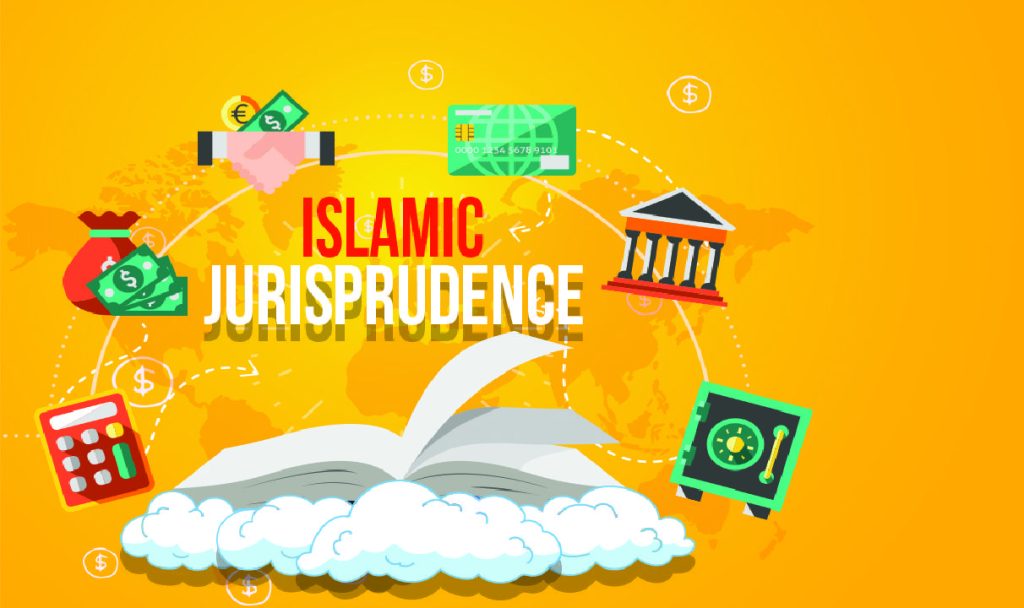
Banking is a key component of the contemporary global economy and serves as a backbone of this system. Since its inception to its modern day form the banking system as an institution has been gradually evolving. Banking as a sector is primarily linked to economics and finance, therefore it has had to particularly in the last 100 years continuously adapt and modernize itself to keep up with the rapidly changing trends in the global economic and financial markets.
Unfortunately, the modern day financial system is a product of a mindset which does not distinguish between things that are permissible and those that are forbidden, it pays a scant attention to spirituality or God-consciousness. Rather, it is an outcome of materialism, an insatiable lust for profit maximization and pure greediness. As a result, now, the perimeters of judging success have changed; earning money through interest is preferred over conducting an actual business activity and businesses are run not with an intention to create goodwill but with an intention to loot and plunder. Banks are an integral component of this system and in essence are providing the lifeline that keeps it running, hence as a sector banking has all the above-mentioned defects engrained in its DNA.
while living under the rule of colonial powers, this system also established its roots in Muslim societies. Who accepted it primarily because of their slave-mentality, ignorance and a lack of interest in their religion. As a result, they abandoned the amazing financial system that was given to them by Almighty Allah (عَزَّوَجَلَّ), it’s a system whose effectiveness is unparalleled in human history and which was implemented globally for more than a thousand years. Even after gaining freedom from colonialism, a deep-seated love for western culture and its influence resulted in further flourishing this system amongst the Muslims to such an extent that no Muslim country was left unscathed by the evils of usury as well the loot and plunder associated to it. Ultimately, by the grace of Allah (عَزَّوَجَلَّ), an awareness regarding the ills of this system started developing amongst the Muslims and they began to critically analyze it. As a result, the haram or forbidden elements of this system were identified and halal or permissible alternatives to it were developed. This corrective process has continued to-date.
The following article is a step in the above-mentioned direction to critically evaluate the many services offered by the banks to their customers and to offer the Islamic Shariah’s perspective on them. This article will be published in this magazine on an instalment basis in’shaa’Allah.
In this edition’s article, you will be able to read up on a critical evaluation of the debit and credit cards issued by the banks and the shariah’s commandment regarding their usage.
A – Credit Card
The (Islamic Jurisprudence Council) “المجمع الفقهي الإسلامي” has defined the Credit card as a “plastic card provided to the customer by the bank against a contract whereby the customer is able to use the card to shop for commodities or avail various other services from places where that credit card is trusted and accepted. Also, the customer does not need to pay the price of the purchased item at the time of transaction, rather the bank pays on customer’s behalf and then the customer repays to the bank at a later time.”
The above definition makes it clear that a credit card is a means to provide a loan, in which the customer receives commodities or services instead of cash. The bank pays on behalf of the client, resulting in creating a debt for the client who will have to repay that amount to the bank. The payment to the bank takes place either on a monthly, quarterly or half-yearly basis, while some banks may link the client’s credit card details to his/her bank account and deduct credit card payments at the end of each month. Likewise, one of the conditions of this contract states that in case of customer’s failure to repay the due amount on time, he/she would have to bear a fine for late payment, this fine is calculated in relativity to the amount of debt due on the client and increases with the time lapse. This is an interest-based condition, because it demands an increase in the amount of the loan which is usury. This is the reason the scholars have termed the use of credit cards as ‘haram’ (forbidden), even if the client has full intention of repaying the loan before the deadline.
However, credit card usage has been deemed permissible by Islamic scholars under certain circumstances that may arise out of necessity or need. For instance, on some essential online purchasing whereby the debit-card usage might not be working or to cater to unexpected needs/emergencies while travelling abroad. However, this should only be done if the user is certain that there will be no delay in making payment to the bank that may cause an accrual of interest. Also, the fact that any credit card usage must only be done as a last resort and in situations of extreme need or necessity.
B – Debit Card
Debit card is also a plastic card, but it is different from a credit card because in this case the customer has access only to the amount of money deposited in his/her account and can only shop to the extent of the deposited amount. This means that the client is utilizing the money that he/she has ownership of and is spending it via debit card. Regarding the use of debit card, all scholars are of an opinion that it is permissible because it does not involve anything against the teachings of Islam.
Additional (side) rulings on usage of credit and debit cards:
1- Availing discounts on the use of credit/ debit card
Many restaurants, hotels and super stores commonly run schemes whereby if the customer purchases commodities utilizing a certain bank’s debit or credit card then he/she will be entitled to a discount. If this discount offer is precisely limited on the use of a credit or a debit car, then availing it is forbidden(haram), Because a discount offer on card-usage definitely means that the balance amount of the commodity purchased will be paid for by the bank. For example, if a commodity’s price was rs.100 and this was offered to the customer for rs.80 at a discount of 20% then the remaining 20 rupees will be paid for by the bank. Hence, this is a gift from the bank to its client, and since a bank’s earnings are haram in totality, one cannot receive a gift from a bank. The point to note here is that it is not necessary for the bank to pay the discounted amount to the restaurant or the hotel in cash. Rather, it can also do that indirectly by providing a service, for example marketing and promotion etc.
However, if the discount has been offered by the restaurant or the hotel itself and not by the bank, then it is permissible to avail it.
2- Buying gold or currency through a credit/ debit card
The procedure of purchasing through a credit card involves the shopkeeper swiping a few credit cards and after some amount is collected he makes a settlement, after making the settlement he receives that amount the next day. If the shopkeeper has an account in the same bank, the amount is transferred to his account directly, otherwise he receives a pay order against which he receives the amount in 2-3 days from the bank. For this reason, shopping through a credit card is haram (prohibited) for all those commodities for which possession and payment is necessary at the same time (at the time of transaction). For example, with regards to gold the Islamic ruling states that the payment should be immediate and without any delay. Currency has the same ruling as gold, and if one buys some Saudi riyals against Pakistani rupees, the give and take should be simultaneous, without any delay and hence using a credit card to purchase gold or currency is not permissible. Likewise, when a client uses a debit card in such transactions, although the amount is deducted from his/her account immediately yet the shopkeeper receives that amount at a later time and therefore this is also a credit-related transaction and is impermissible while purchasing gold or currency.
Shaikh Uthaymeen ((رحمه الله said,
هذا لا يجوز في حال شراء الذهب والفضة ، لأنه يشترط في الذهب والفضة التقابض من الجانبين ، أما إذا أخذ المشتري الذهب والفضة وقام بتحويل الثمن عن طريق الكمبيوتر ، فليس هناك تقابض في هذه الحال ، ولذلك لا نرى جواز ذلك
“This method of business (shopping) is not permitted because in transactions involving gold and silver, possession and payment have to occur simultaneously (within the meeting). In the case where customer receives possession of gold or silver and pays through a computer )debit/ credit card(, the condition of possession of payment is not fulfilled and so we do not consider it permissible.”
However, some scholars consider it permissible but they also place the same condition of possession and payment being simultaneous (and immediate), as is clear from the following fatwa from the Saudi Arabia fatwa committee:
مادام الحال أن جهاز نقاط البيع الذي بموجبه يخصم المبلغ حالا من حساب المشتري المودع في المصرف المسحوب منه ويحول حالا الى حساب البائع ، وليس هناك عمولات لقاء هذا التحويل فإن هذا البيع له حكم التقابض في المجلس
“only under the actual circumstance when this purchasing machine deducts the amount from the purchaser’s account and immediately transfers it to shopkeeper’s account, and the bank does not apply any charges to facilitate this transfer of money, will the ruling on this case considered to be the same as is for the case when possession and payment takes place simultaneously within one meeting.”
But as we already mentioned that the shopkeeper receives the payment with a delay of at least one day, therefore it does not fulfill the condition discussed in the above fatwa.
Some scholars consider the receipt which the shopkeeper receives (after swiping the card) as possession of the payment itself. This is because the receipt is a surety of the payment itself, and thus according to these scholars the buying of gold, silver and currency is permissible via using debit/credit card. Saying that the receipt which the shopkeeper gets ensures that he will definitely be paid the amount is true to a great extent yet the issue herein is not to ensure that the payment is received against the said commodity but to ensure possession of the amount at the exact time of the transaction. Receipt is just a tool to ensure that the payment will be received at a later date, and can never be considered as actually possessing the payment itself. Conclusively, in the light of the above arguments, it can be stated that the buying and selling of gold, silver and currency through a (debit/ credit) card is not permissible.










